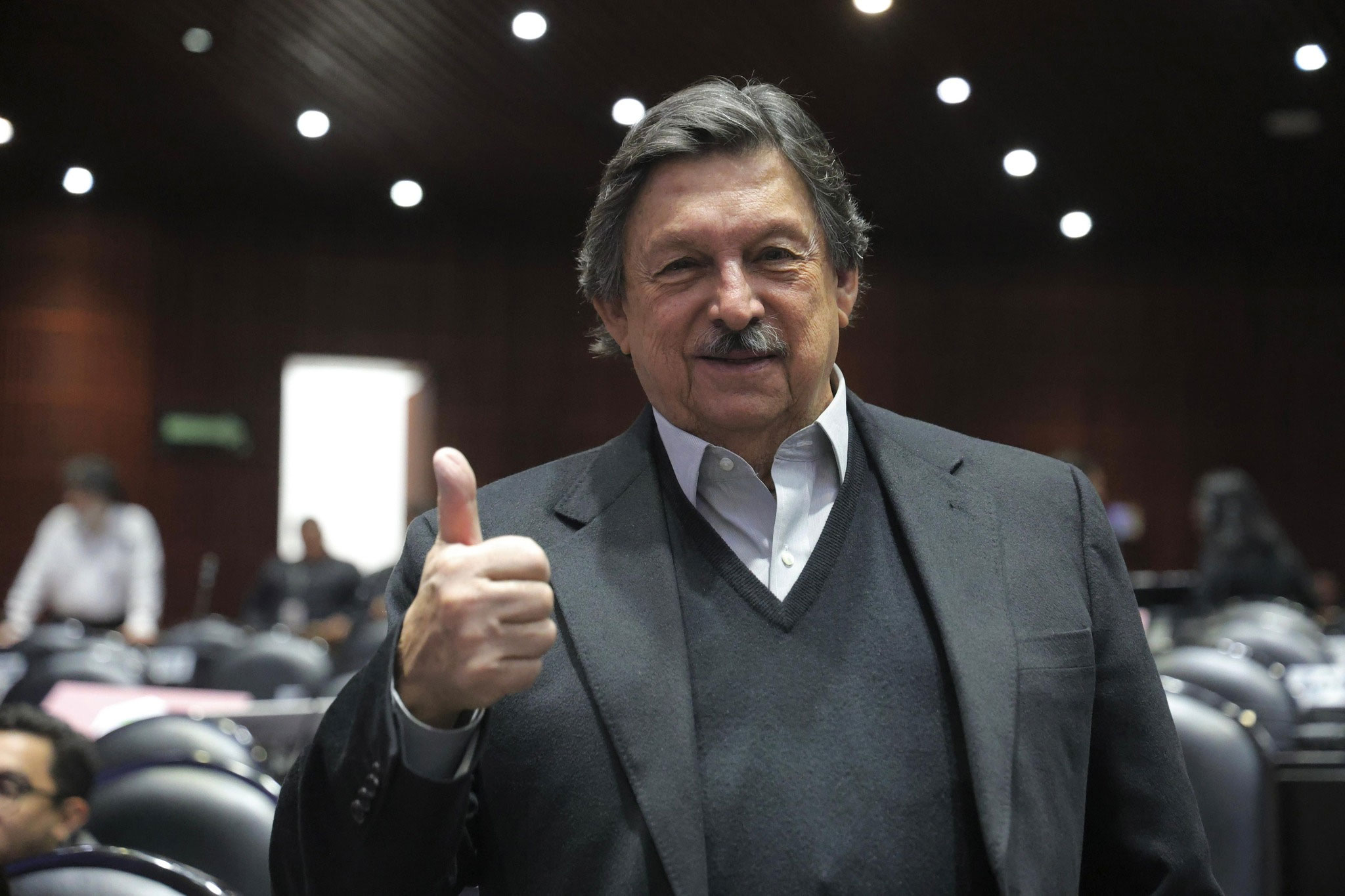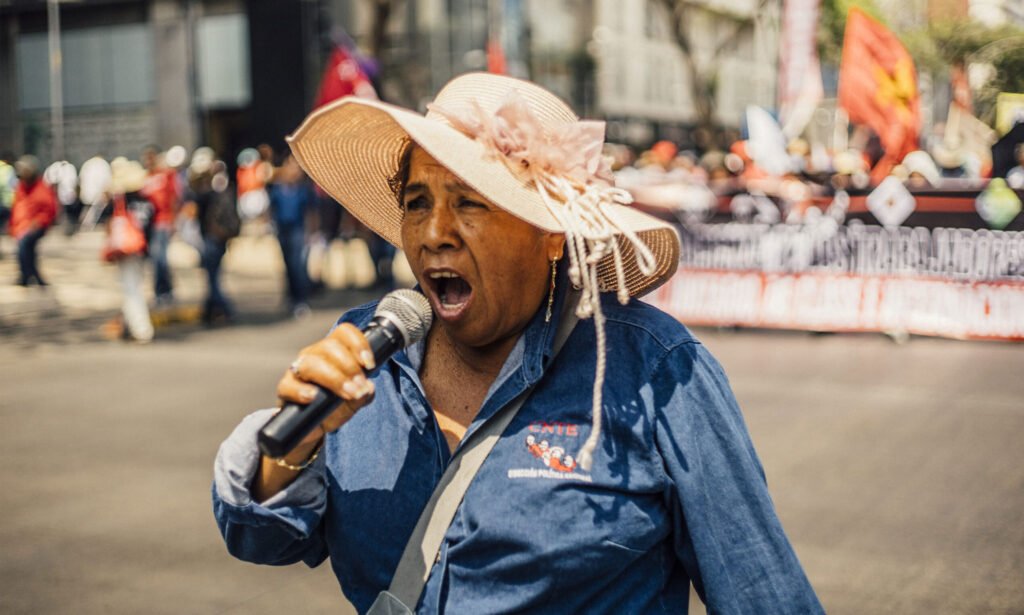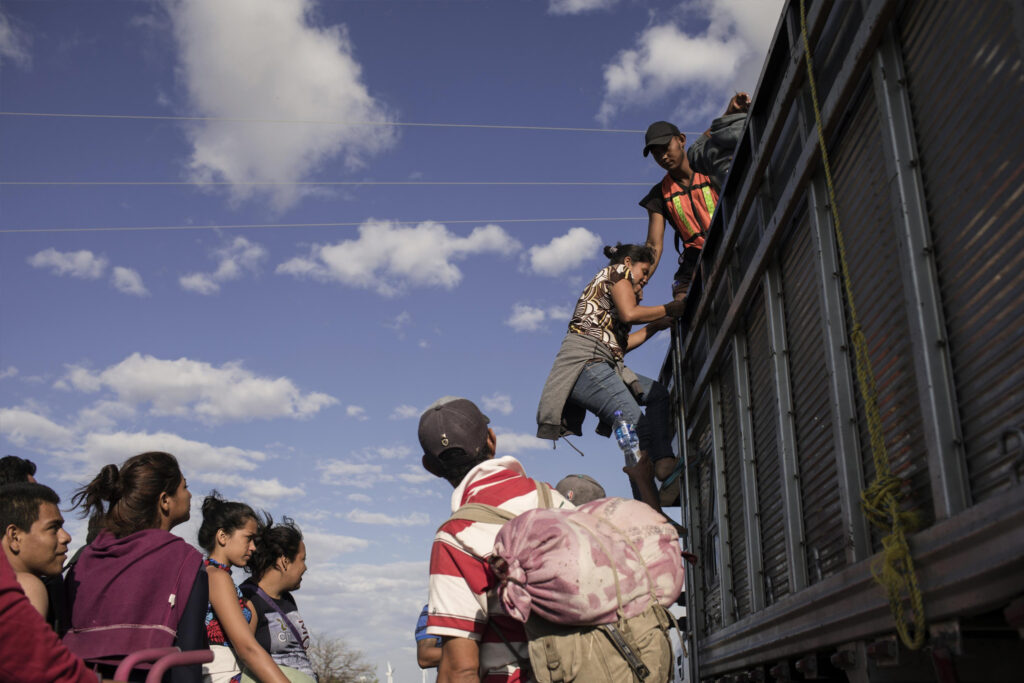The Power of International Alliances
This editorial by Napoleón Gómez Urrutia originally appeared in the October 23, 2025 edition of La Jornada, Mexico’s premier left wing daily newspaper. The views expressed in this article are the author’s own and do not necessarily reflect those of Mexico Solidarity Media, or the Mexico Solidarity Project.
Working class achievements cannot be achieved without unity, solidarity, and international cooperation. That is why, a week ago, I had the honor of leading an important working tour in Madrid, Spain, which marked a transcendental step in strengthening and consolidating the transformation of the labour and union movement, both in Mexico and globally. During this visit, I met with strategic figures for our struggle, such as Yolanda Díaz, Second Vice President and Minister of Labour of Spain; Joaquín Pérez Rey, Secretary of State for Labour; and Fernando Luján de Frías, Deputy Secretary General of Union Policy of the General Union of Workers (UGT). I also met with Pepe Álvarez, General Secretary of the UGT; Elma Saiz, Minister of Inclusion, Social Security, and Migration; as well as members of the Spanish Socialist Workers’ Party (PSP), to consolidate a solid network of allies committed to defending the rights and justice of the working class.
The guiding principle of these meetings was the need to unite around firm and clear lines of thought to counter the attacks of right-wing governments and their policies, which represent a direct attack on labour dignity and freedoms. Our legitimate demand to advance the struggle is based on compelling arguments and inalienable human rights; therefore, it is essential to establish a united and solid international front that will allow for greater presence and capacity of unions.
We cannot and should not allow the weakening of our union organizations, because they are the fundamental pillars for the defense of labour rights and achievements. We are currently experiencing a global context where right-wing governments and neoliberal policies are pushing to make work precarious and limit freedoms, making it urgent and necessary to plan joint strategies. We must unite and organize to structure and strengthen the strength of workers, guaranteeing a new, modern and progressive unionism that is also fair, free, and democratic, responding to local challenges and strengthening its presence in the international arena. Without a doubt, these meetings demonstrate that the fight for labour justice transcends borders and requires constant and effective coordination.

Union defense requires us to be at the forefront, adapting our tools and methods, such as the use of new technologies for the internal democratization of unions, and closing ranks in the face of external pressures that seek to divide and weaken our movement. Planning and strengthening ourselves is a crucial responsibility to ensure a dignified future for the working class in Mexico and around the world.
Thus, a key point of these meetings was to highlight the many similarities between Mexico and Spain in their transformation to guarantee labour rights. Both countries face shared challenges in approving far-reaching reforms such as paternity leave, the pension system, an increase in Christmas bonuses, and the reduction of the workday, which represents a historic and urgent debt to women and men who deserve decent hours to live together, rest, and spend quality time with their families. The pending issues in both nations reflect the need for joint strategies to strengthen the voice of workers in the face of these pressures, but also demonstrate the importance of recovering and strengthening union legitimacy as a key instrument for the defense of all.
The reduction of the workday represents a historic and urgent debt to women and men who deserve decent hours to live together, rest, and spend quality time with their families.
In this sense, organization, unity, and international exchange are essential tools for addressing contemporary challenges. The defense of labour rights should not be understood as an isolated national issue, but as a global cause that requires active solidarity and strategic coordination. It is therefore pertinent not only for nations to share their problems but also to exchange ideas and establish joint lines of action to overcome obstacles and curb the selfish interests that degrade and violate those who work hard every day to get ahead. Furthermore, a common ground would be established that would compel the business class to align itself with labour justice worldwide and prevent, as often happens, large industrial conglomerates from seeking out countries with weak labour regulations to abuse and enrich themselves at the expense of workers.
Faced with this reality, there must be a clear will and commitment to defend the working class and strengthen global union unity; only in this way will we ensure that rights and freedoms are not a concession, but an inalienable reality. This political and historical relationship we have consolidated with leaders, union representatives, and government officials in Spain confirms that, despite territorial differences, labour movements share a common vision of transformation and urgent social justice. I will remain steadfast in my vision of articulating an international front that responds to current needs until every worker in Mexico, and around the world, enjoys well-being, prosperity, and justice.
-
CNTE Announces 72 Hour National Strike & March to Mexico City’s Zócalo
The class-conscious teachers union will also make “courtesy visits” to the embassies of countries who committed atrocities against Iran, to show their rejection of US imperialism.
-
Yet Another Mexican Citizen Dies in ICE Custody
The unidentified victim is the 9th Mexican citizen to have been killed in ICE detention since the beginning of 2025; this time in Adelanto, California.
-
Let’s Talk About Migration: Trumpist Persection
Millions of women who have endured unspeakable violence on their migration journey are now being persecuted in the United States by an extremely xenophobic and misogynistic government, led by Donald Trump,




